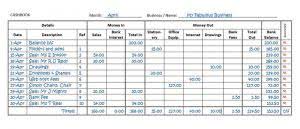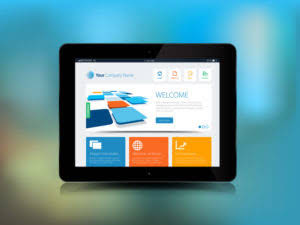
With these basic accounting tips for small-business owners under your belt, we’re sure you have the tools you need for small-business success. If you set up your finances with cash-basis accounting, you’ll record financial transactions when the cash moves accounts. When https://www.bookstime.com/ you have a small business, you’re responsible for paying taxes on your income and profits. One of the advantages of using accounting software is that much of the reconciliation process is completed by simply linking your bank accounts to your software of choice.
You have to know the ins and outs of your business expenses and all your personal and business finances. Whether you’re just getting started or you’re a small business owner with a brilliant vision, you’ll need to implement some basic bookkeeping techniques. How you organise and document your financial resources, though, is up to you. You can outsource the work to a professional bookkeeper, or you can do it alone.
Examples of payment processors include Square, ShopKeep, Shopify POS, and Stripe. If you work with other businesses or work directly with clients using invoices, you can use tools like Neat that have custom invoices and online customer payments wrapped up in one system. Most accounting software offers a range of features that are suited for almost any type of small business. They include invoicing, financial data management, and other business bank account fun. Sending invoices that recur automatically at specified intervals is another key feature of accounting software. The program tracks outstanding payments and even sends late payment reminders to past-due clients.

Fortunately, small business owners don’t need to be experts in mathematics to find success when doing their own bookkeeping. There are many ways to divide bookkeeping responsibilities and leverage powerful technology and small business accounting software for more accurate expense tracking. According to the QuickBooks survey, these business owners wish they’d invested in record keeping for small business things like expense tracking and invoicing sooner. Now is the time to invest in financial bookkeeping or accounting software for your business or recruit the help of an expert (like a bookkeeper or accountant). Today, many small-business owners prefer to manage their operations on the go. A mobile accounting app allows you to access your financial data anytime, anywhere.
Keep records of your business transactions for 6 years if you don’t report income and if the income represents over 25% of your return gross income. You should consider electronic invoicing to make the process easier and faster. Sending an invoice within 48 hours is a great account receivable practice to boost collection. Set a date early enough each month to give you time to prepare the paperwork. If the cost starts to approach the actual cost of outsourced bookkeeping, it’s time to consider taking the load off your back.
Analyze where you can cut some costs, and you can improve a narrow profit margin. You can also track your gross margin weekly, biweekly, or monthly based on your sales. Your goal in bookkeeping is to keep the most accurately detailed account of business financials. Determining the historical cost of something you’ve purchased or acquired is merely accounting for the purchase or acquisition at the then-rate you paid.


If your business is still small, you may opt for cash-basis accounting. If you carry inventory or have accounts payable and accounts receivable, you’ll likely use accrual accounting. The first step you’ll need is a business bank account, which allows you to keep your personal and business expenses separate. Bank accounts allow businesses to safely store their money and make transactions easily. There are several types of business bank accounts, each with its own purpose and benefits. Accrual accounting provides a more accurate picture of a business’s financial health than cash accounting, as it considers all of the financial transactions for a given period.
The golden rules of accounting can help ensure that your bookkeeping is accurate and up-to-date. This type of account is designed for everyday use and allows businesses to make unlimited deposits and withdrawals. Typically, checking accounts also come with a debit card for easy access to funds. Generally, if your assets are greater than your liabilities, your business is financially stable.
OR CALL OUR OFFICE (812) 378-5595